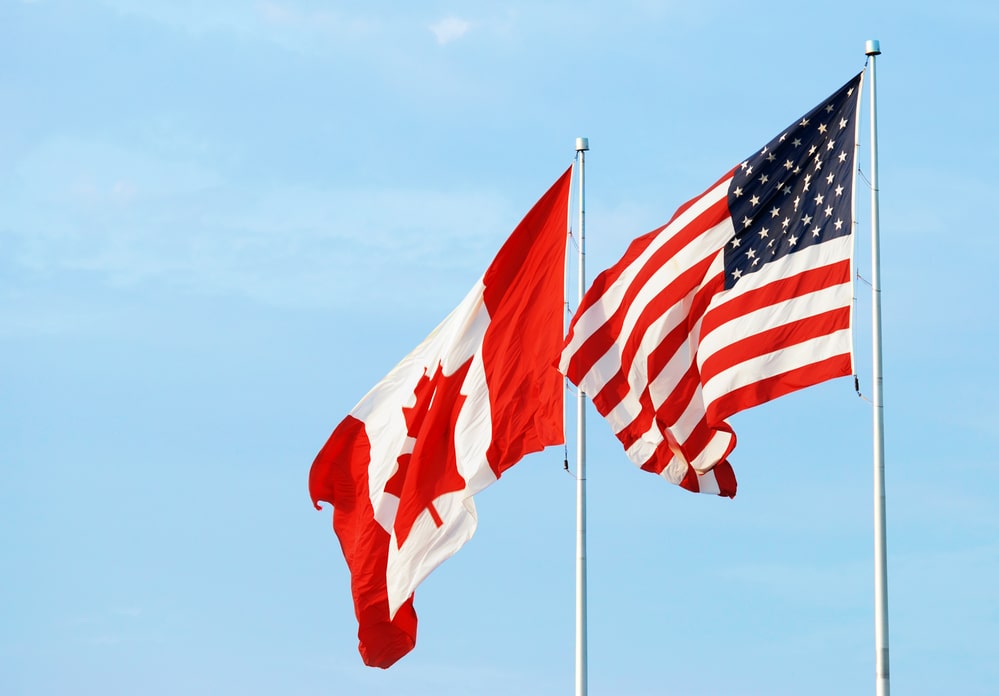A short guide for American citizens banking in Canada
Whether you’re an American going north of the border to study, work, or migrate, or an entrepreneur in the United States with some business transactions in Canada, you will find it convenient to have a Canadian bank account.
Although not required by law, having a Canadian bank account if you’re to work in Canada is a smart move. That’s because a bank account is crucial for processing your local bills and payments as well as in establishing your credit history. Another reason is that most employers would want you to have one to make it convenient for them to process your salary and pay taxes. If you’ll be working there, it will be your obligation to pay taxes. Although if you don’t have a Canadian bank account, you can also pay your taxes through wire transfer to the Canada Revenue Agency. You can also make this payment using an internationally-issued credit card via a third-party service.

If you’re staying put in the US with business transactions receiving payments from or sending payments to Canada, opening a Canadian bank account would also come in handy to cut down on expensive conversion fees and other transaction costs.
By sorting out your finances first, everything will be in place upon your arrival or when you need to make transactions there. To help you do that, here’s your guide to banking in Canada.
Can an American citizen open a bank account in Canada?
Yes. If you’re not a Canadian citizen or not residing in Canada, it is possible to open a bank account provided that you can present the required documents for identification which will be discussed shortly.
People in Canada, have the right to open a bank account even if they:
- Are unemployed
- Don’t have money to immediately deposit into the account
- Have been bankrupt.
How to Open a Canadian Bank Account
Most banks in Canada will typically require you to personally go to the bank for you to open an account. Different banks may have varying specific requirements that’s why calling the bank and asking what they require before going there would be a good idea.

Typically, banks will require the following information and documents:
- Your immigration papers (or permanent residency card if you have one)
- Your valid passport and/or driver’s license
- Proof of address
- Your Social Insurance Number (SIN)
Majority of financial institutions may accept these immigration documents:
- Work or study permit
- Temporary Residence Permit
- Confirmation of Permanent Residence
Which Banks Don't Require SIN?
The Income Tax Act requires banks to report interest income to the Canadian government. That’s why if you’re opening an account that earns interest, the bank will require you to provide your Social Insurance Number (SIN). If you don’t have a SIN yet, you may consider a non-interest bearing account. Most banks don’t require a SIN to open accounts of this type.
Listed below are some of the Canadian banks where you can open an account without a SIN:
- Canadian Imperial Bank of Commerce (CIBC)
- National Bank of Canada
- Royal Bank of Canada (RBC)
- Scotia Bank
- Toronto-Dominion Bank (TD Bank)
Can I Open a Canadian Bank Account from the US?
Yes, it is possible.
Typically, most banks in Canada will require you to make a personal appearance for you to open a bank account. However, opening a Canadian bank account without leaving American soil is still possible, although it may not be as easy as when there is face-to-face interaction, and the process will take a number of days. You have three options to make this happen:
1. Find out if your American bank has branches or affiliations with Canadian banks. If they do, ask them if it’s possible for you to open a Canadian bank account in the US through them. Most likely, they may have a process for opening cross-border accounts. Prepare your immigration details (study or work permit) as these will be required to proceed with the process.
Below are some of the banks with branches in both the US and Canada:
- BNP Paribas
- Citibank
- HSBC
- TD Bank
Take note though that these accounts may require prohibitive minimum opening deposits or maintaining balances. They can also charge significant account maintenance fees.
2. Another option would be opening an international bank account, which could be an easier process. International bank accounts will come in handy for managing your money and for minimizing banking costs.
3. Your third option would be opening a virtual bank account. This is ideal if you’re not really planning to move to Canada and therefore have no immigration papers to show for. You just need a bank account where you can receive payments from your Canadian clients, send payments to your Canadian suppliers, and other cross-border transactions. With a virtual bank account, you can save on banking costs.
Best Banks in Canada
While there are various smaller local banks in Canada, banking with one of the major banks may be more beneficial as they provide better account-opening offers and customer support, flexibility, ease and efficiency, not to mention extensive coverage of locations with branches across the country. The following are the “Big Five”:
-
The Royal Bank of Canada (RBC) -The largest bank in Canada in terms of capitalization (C$150.35 billion as of early 2020) and net revenue (C$12.431 billion in 2018), RBC has over 1300 branches. As mentioned earlier, it’s one of the banks where you may open a bank account without a SIN. Also, RBC offers a Newcomer’s Package to help you adjust to Canadian living.
-
Toronto-Dominion (TD) Bank - The Canadian bank with the most assets (C$1.4 trillion as of July 2019), TD has over 1,100 branches in Canada and over 1200 branches in eastern US. It’s another bank where you can open an account without a SIN. TD requires American citizens applying for a bank account in person a driver’s license and US passport. To eliminate waiting time, you can set an appointment for your visit at the branch over the phone. You can open accounts in US or Canadian dollars. TD Canada Trust clients can withdraw from TD Bank ATMs in the US free of charge.
-
Bank of Nova Scotia - With more than 1,000 branches all over Canada, this third largest chartered bank is a publicly listed company that trades on both Toronto and New York Stock Exchanges. Scotiabank also offers accounts that do not require SIN upon opening.
-
Bank of Montreal -The fourth largest bank in Canada and one of the top ten in North America, BMO is also the oldest Canadian bank. It has over 900 branches in Canada and substantial operations in the Chicago area and other parts of the US. It is also listed in both the Toronto and New York Stock Exchanges for trading.
- Canadian Imperial Bank of Commerce - With over 1,100 branches in Canada, CIBC is the fifth largest bank in Canada. It welcomes Americans who are nonresidents of Canada to open an account in person. CIBC requires two identification documents: a US passport and a driver’s license. If you’re not really planning to stay north of the border but may have some transactions there, you may want to consider opening an account with CIBC US which offers cross-border banking services to clients with North American operations.
Keep in mind that monthly fees may be charged for having a Canadian bank account if you’re not a student.
Rules for US Citizens Opening a Canadian Bank Account
Americans opening a bank account in Canada or in any other foreign country are required to disclose it to the federal government depending on how much balance you have in your accounts. In general, American citizens having a balance of $10,000 or more in foreign banks are required to submit a Report of Foreign Bank and Financial Accounts (FBAR form) each year. This is filed to the Financial Crimes Enforcement Network (FinCEN), a bureau of the Treasury Department responsible for the war against money laundering.

Depending on your tax filing status, if you have $50,000 or more, you’re required to report your foreign accounts on Form 8938 and file it to the IRS using their federal tax return. (Filing both forms may be required for some taxpayers). Hefty penalties await those who fail to file the required forms.
